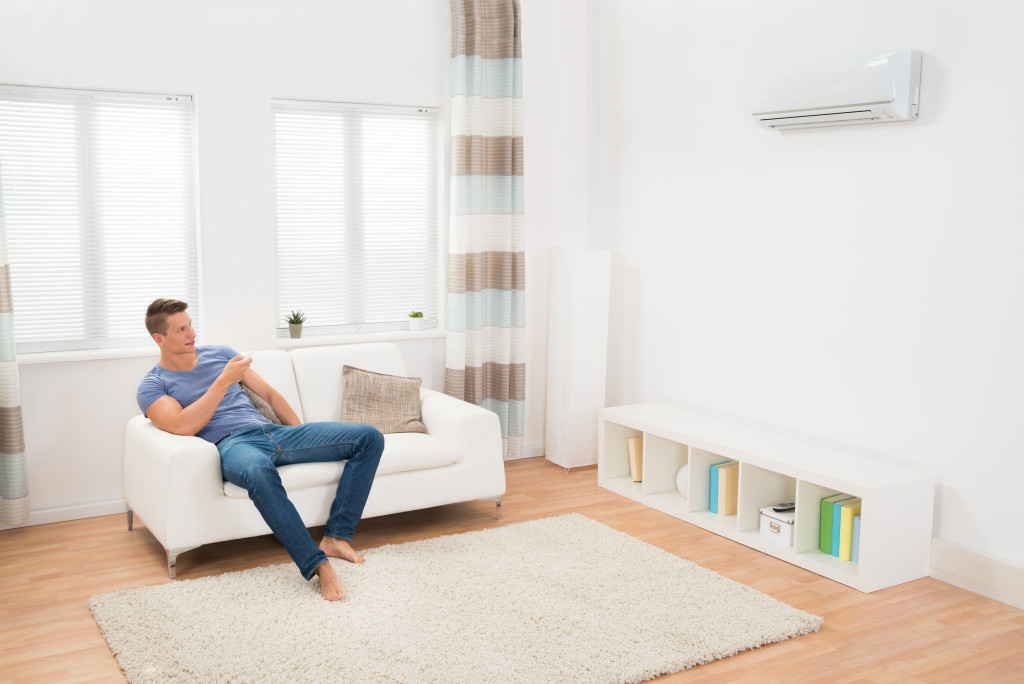- Maintaining a clean home can have positive health implications—from reducing colds and allergies to preserving respiratory health.
- An organized home helps reduce stress levels, as well as improve overall mental health.
- Cleaning products should be selected based on the type of surface being cleaned.
- Air purifiers help capture and trap airborne allergens, and it also helps in improving air quality.
- Regularly wash bedding, and dust surfaces, keep the home dry, and vacuum with a HEPA filter to reduce allergen exposure.
Do you ever wonder why having a clean home makes you feel so good? It’s more than just the satisfaction of getting rid of clutter and reducing stress. Research has shown a direct link between your overall health, sense of well-being, and the hygienic state of your living environment. Keeping your home organized and spotless can have enormous benefits for physical and mental health—if you know how to do it right!
Maintaining a clean home is not just about aesthetics or tidiness; it’s also essential for health and well-being. Homes can harbor dust, mold, and other pollutants that can compromise indoor air quality and increase our risk of respiratory problems, allergies, and other health issues.
This article will cover everything from dust allergies to mental focus, providing essential tips on maintaining the perfect balance between an aesthetically pleasing and healthy lifestyle.
A Clean Home is a Healthy Home
Keeping your home clean is the first step towards a healthier life. You may not realize it, but living in an unclean home can lead to negative implications in the long run—this ranges from catching colds and allergies to respiratory issues. The fact is that most of us keep a lot of dirt and dust around our homes, including carpets, bedding, furniture, and upholstery.
When we don’t keep everything clutter-free or don’t practice regular hygiene processes like vacuuming or washing sheets or clothes frequently, our unhealthy habits spill over into how we treat ourselves, leading to increased incidences of diseases.
By implementing good hygiene practices such as washing dishes and utensils, taking out the garbage regularly, mopping the floor often, and cleaning bathroom grime from surfaces, windows, and mirrors—you can ensure your entire family stays healthy for years to come!

The Psychological Benefits of an Organized Home
Living in chaos can be exhausting and does more than just generate physical stress. The thought of tidying up all those items scattered throughout your home will likely make you feel overwhelmed before you’ve even begun. Believe it or not, there is a silver lining to organizing: the psychological benefits it can have on your mental health.
Having an organized home not only eliminates stress caused by clutter and chaos but also helps reduce anxiety levels and amplifies feelings of being in control over your life. So if you’re having trouble finding that motivation to start organizing your living space, remember that you are creating efficiency with these efforts and actively bettering your mental well-being too!
An orderly home environment has loads of positive implications worth tapping into!
The Importance of Indoor Air Quality
Poor indoor air quality can have profound health implications, ranging from eye and throat irritation to asthma attacks. Common pollutants such as mold, formaldehyde, carbon monoxide, and nitrogen dioxide are all linked to short-term health problems such as fatigue, headaches, dizziness, and nausea—and worse long-term health consequences when not addressed promptly.
This is why hiring an experienced indoor air quality consultant is essential to ensuring optimal levels of indoor air safety and avoiding preventable illnesses. Making sure your home or business has good quality indoor air is crucial for psychological well-being and physical health: take the proactive step of engaging a professional today for peace of mind!
Cleaning Methods for a Healthy Home
Keeping your home clean and healthy requires more than just tidying up. Suitable cleaning methods are essential to maintaining a safe and germ-free household. Different surfaces and materials require specialized products to ensure you use the most effective cleaning technique. From tile floors to leather furniture, selecting the right cleansers for each surface is the key to sparkling results without causing any damage.
Additionally, regular deep cleanings with vacuums and steamers help purify the air and can reduce allergens in your home—the perfect way to keep your family breathing easily! As long as you choose products specifically made for use around the house, there’s no reason why a clean and healthy lifestyle isn’t within reach for everyone.
Tips for Reducing Allergens in the Home
Allergens are everywhere, but did you know your home could be a hotbed of allergens? From dust mites to pet dander, there are a variety of things that can trigger allergic reactions. Luckily, there are several things you can do to reduce allergens in your home. Here are some tips to help keep allergens at bay:
Use Air Purifiers
Air purifiers are a great way to remove allergens from the air. These devices capture airborne particles like pollen, dust, and pet dander and trap them in filters. By using an air purifier, you can reduce the number of allergens in your home and breathe easier.
Vacuum Regularly
Vacuuming is another effective way to remove allergens from your home. Use a vacuum cleaner with a HEPA filter to capture even the tiniest of particles. Be sure to vacuum carpets, rugs, and upholstery regularly, as these are the places where allergens tend to accumulate the most.
Wash Bedding Frequently
Dust mites love to hide in bedding, so it’s essential to wash your sheets and pillowcases frequently. Use hot water to kill any dust mites lurking in your bedding.
Keep Your Home Clean and Dry
Regular cleaning is essential to reducing allergens in your home. Dust surfaces, wipe down counters, and sweep or mop floors regularly. Additionally, it’s important to keep your home dry, as moisture can lead to mold growth. Use a dehumidifier to keep humidity levels in check, especially in areas like the basement and bathroom.
Following these tips and working with an indoor air quality consultant can help reduce allergens in your home and help you enjoy a healthier, more comfortable living environment.

Keeping a clean and organized home has tangible benefits for our physical and mental health. The many benefits of maintaining a tidy home aren’t overstated, from improved air quality to peace of mind with a calm and well-ordered living space. While some may think caring for their home is too complicated or takes too much time, it doesn’t have to overwhelm you; making small changes in cleaning methods or home can make all the difference.
From choosing the right cleaning products to keep bacteria at bay to understanding the importance of proper ventilation of indoor air pollutants, giving your home regular deep cleaning is a great place to start. Don’t forget—working with an indoor air quality consultant can also help you achieve optimal air quality in your home. All these tools together will contribute towards leading a healthier and happier lifestyle!

